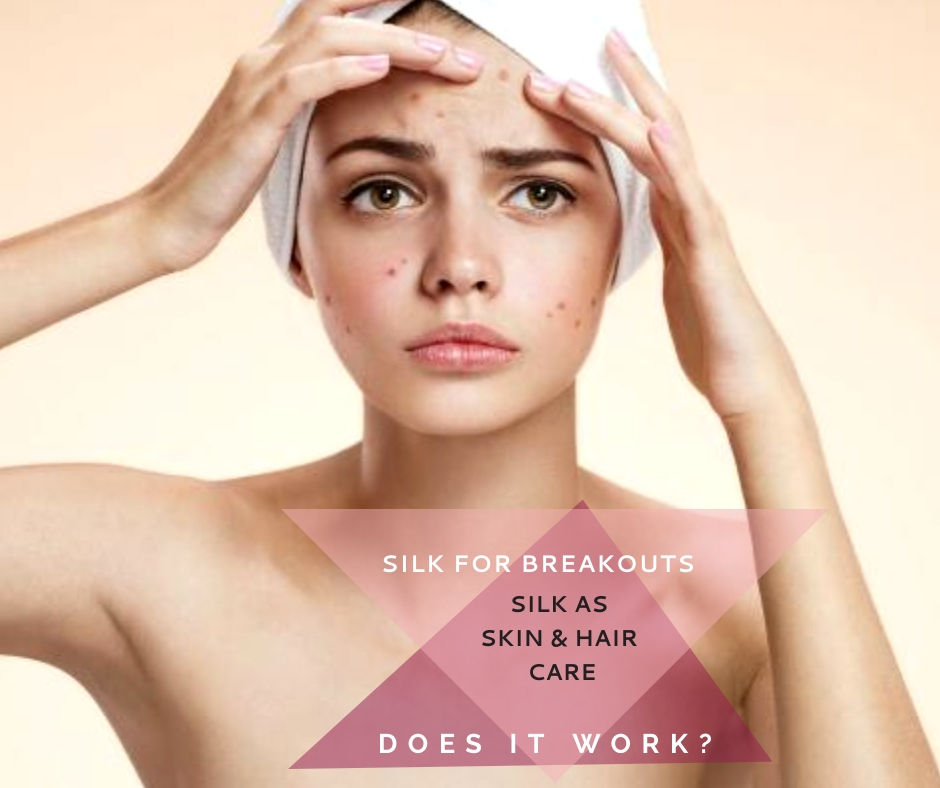Some years ago I've received an advice from La Prairie consultant - to prevent wrinkles I must sleep on 100% silk pillowcases, so I've decided to give it a try.
Beauty sleep is necessary- in order to look and feel our best, we simply need our Beauty sleep!
It is essential that we give our bodies enough time to reset, especially since we know cell turnover primarily happens at night! Although there are a tons of skincare products you can put on your skin to help maximise its regeneration while you sleep, there is another product on the market, which has taken the beauty world by storm: silk pillowcases.
The silk pillowcases are made of 100% silk, which are supposedly help to prevent wrinkles and even breakouts; help skin and hair stay hydrated, and regulate body heat. Although there are plenty of silk-blends around, a proper silk case should be made of 100 % silk.
The Result?
As much as I’d love to say that the silk pillowcases are a total problem solvers, it's not entirely true.
There is no scientific evidence that silk pillowcases can stop acne breakouts or prevent wrinkles for good. But that doesn't mean we should dismiss silk pillowcases entirely.
Silk can be a great option for someone with sensitive skin, and it can be much easier on the skin than the cotton pillowcases. Cotton pillowcases can draw in moisture from your hair and skin, potentially drying out your skin and hair and irritating it.
The moisture pulled into the pillow can also draw in allergens and bacteria, causing damage and reactions to your hair and skin. Sleeping on a silk surface means less moisture will be taken from your skin and hair. A silk surface reduces the friction between your skin and hair against the pillow, which can result in less breakage when it comes to your hair and potentially less opportunity to cause skin irritation or reactions while sleeping.
Help with Breakouts?
Possibly. Any product you apply on your hair during the day, will likely end up on your pillow.
Whatever is on your pillow will thus likely end up on your face. Hair products can contain harsh ingredients and can be oil or silicone based, all of which can cause inflammation and breakouts
In addition, if the moisture is pulled into your pillowcase and you are sleeping on your face, inflammation and breakouts might occur.
Not removed makeup and sweating at night are also possible causes of breakouts. Make sure you cleanse your face well before bed and keep your room cool when sleeping to reduce sweating and the resulting clogged pores.
Bottom line: Whatever is on your pillow has the potential to get on your face—especially if you're a side or stomach sleeper—regardless of your pillowcase of choice. But, your pillowcase fabric might still play a role for some!
And the Wrinkles?
Fighting wrinkles happen to be the silk pillowcase's main claim to fame. Many on the market claim that the silky slip will help decrease skin creasing, tugging, and pulling and thus help keep wrinkles at bay.
Sadly, there is no hard and fast evidence that silk prevents wrinkles. It is actually your sleep pattern that is far more important than the material you’re sleeping on when it comes to wrinkle talk.
If you are sleeping on your left side, you will have more wrinkles on the left side of your face. With skin ageing and sun damage, skin does not have the same elastic properties, so when it is been squished into one position, over time it starts to wrinkle and they will stay. If you're really concerned with preventing wrinkles while you sleep, it’s best to sleep on your back and not put too much pressure on either side of your face.
For hair?
Other materials wick away the oils and moisture in your hair, and makes friction by snagging on rough fibres that can break hair. In fact, wrapping hair in silk before sleep or rubbing dry hair after washing is a method women have used for centuries.
Silk is great for all hair types and particularly beneficial to those with curly, dry, frizzy, thinning, delicate, or chemically treated hair.
Ø Preventing frizz and split ends – Hair slides across silk instead of coming against resistance as with cotton or other man-made cloths
Ø Lessens tangles – Since there’s no friction, hair won’t get bunched up or caught on smooth silk.
Ø Helping to support natural hair oils and moisture –Silk is protein it doesn’t suck away moisture like cotton or other absorbent fibres. Instead, it helps the hair retain moisture and oils instead of
Ø Minimising stress to thinning hair – When your hair isn’t being pulled or pushed across coarse fabric, it can restore and renew while you sleep
To sum up:
Think of silk pillowcases as skin care supplements—not the ultimate solution but able to provide some benefit. Silk pillowcases can be more comfortable and easier on the hair. When it comes to your skin, silk could definitely help with hydration.
To really help your skin, stick to a good skin care routine, make sure you're removing all makeup before bed, and use safe, non-irritating products. Silk pillowcases are just the final flourish for an good skin care routine!
But, from my personal experience silk pillowcase made a huge difference to my hair! For more than 5 years sleeping on silk pillowcases my hair never get split ends anymore, and i have waist length hair!
If you have problems with hair breakage and split ends- the silk pillowcase could be the solution. Also use very soft towels for hair, hair love soft!





Comments